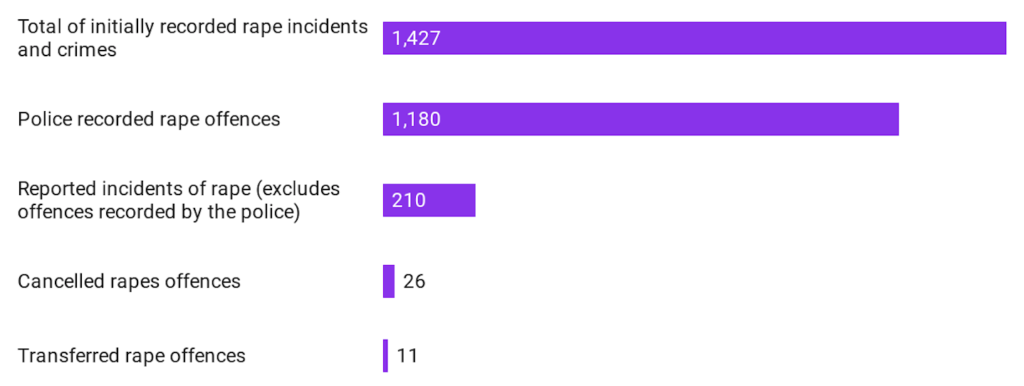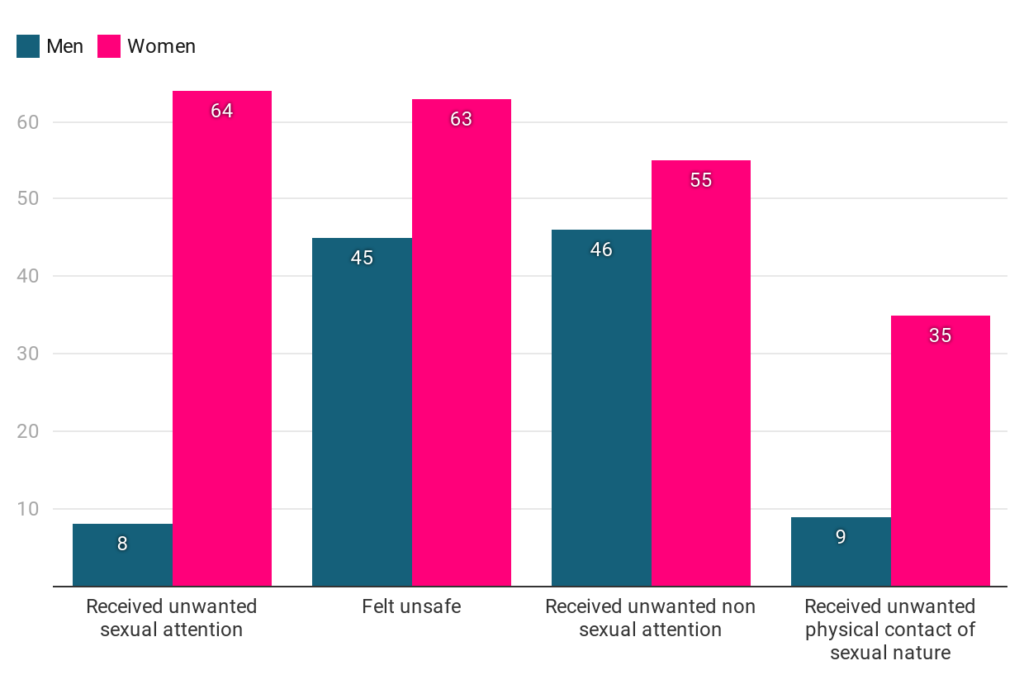Women are using new technologies like smartphone apps to protect themselves against sexual predators around Cardiff in the dark winter months

“I don’t remember wearing that skirt again after that,” says Ellie. She is talking about the time she was verbally harassed by two men on Queen Street as an 18-year-old.
Ellie was initially approached by two men in their early 30s who asked for her number. She politely refused and continued shopping. About 20 minutes later, she passed them again, and the men shouted at her, asking why she wouldn’t give them her number, catcalling and shouting. An older man stepped in and told the men to leave her alone, but they told the man that “she wouldn’t dress like that if she wasn’t asking for it”. Ellie was wearing a jumper, skirt, tights and a coat.
She’s 21 now and avoids walking around certain parts of Cardiff alone, including Richmond Road and the notoriously unsafe Rhymney Street bridge joining Cathays and Roath. Ellie explains a large part of this is due to warnings from other women on Facebook groups like Overheard at Cardiff about perverse men.
These groups like Overheard at Cardiff, which has over 30 thousand members, and safety apps like Hollie Guard are becoming increasingly popular methods for young women to stay safe as the darkness starts to creep in earlier.
Ellie’s story of street harassment
Women are using Facebook to stay safe
One such post on Overheard at Cardiff in January describes “A man about 35-40 years old and 5ft10 with dark brown hair” who offered to buy a girl clothes. Another post on Connect Cathays in July describes a man offering money for sex, and when they refused saying, “Oh baby come on.” The posts always pinpoint the location of the incident, sometimes even with sneaky snapshots of the perpetrator.
Overheard at Cardiff is a closed Facebook group which anyone can join once approved by an administrator. There are also Facebook group chats for women walking home alone in the city which can be joined through links posted on the Overheard page.
One in particular called “Cardiff Women Walking Home” allows members to post their A to B route on the chat and see if anyone is walking a similar way nearby to buddy up. With over one hundred members, there is often someone close.
As invaluable as these warnings are for deterring women away from problem areas, there is not much the groups can do in a situation of confrontation. The Home Office Crime and Policing statistics reported that a startling 1427 cases of rape incidents and crimes were recorded by South Wales police from 2019 to 2020.
Number of reported and recorded incidents of rape in South Wales 2019-2020

Safety Apps are always on hand
This is where apps like Hollie Guard are handy. Hollie Guard is an app created after the death of 20 year-old Gloucester hairdresser Hollie Gazzard, who was stalked and murdered by her ex boyfriend in 2014. On the app, when your phone is shaken, a message is sent to a predetermined trusted contact to alert that you are in trouble.
The app is championed by South Wales Police. Detective Superintendent Mark Lewis of South Wales Police says, “We promote the use of Hollie Guard and welcome people taking additional steps, such as personal safety apps, to help stay safe and feel reassured.”
He added that they also advise people walking in the hours of darkness to stick to well lit routes, stay in groups or pairs and use public transport.
A startling 1427 cases of rape incidents and crimes were recorded by South Wales police from 2019 to 2020
A Hollie Guard representative explained, “The added confidence and security which comes with knowing if you do come into trouble, you can raise an alert instantly does massively help.”
They said there has been a spike in downloads and alerts sent during the recent winter months.
Annie Holcombe, a 20-year-old student at Cardiff University, posted on Overheard at Cardiff last December encouraging other young women to download the app. She said she felt safer walking around Cardiff by herself since having it on her phone.
The terrifying facts behind street harassment
Shockingly, in the UK, there is no law against verbal harassment. Men are free to shout rude and sexual comments at young women without the fear of even a fine. This is why it is paramount that technology adapts to keep women safe.
Difference in percentages of men and women encountering harassment in public spaces in the UK

With a new Women’s Aid Cardiff report finding that 80 percent of the women they asked aged between 17 and 24 had been cat called and 38 percent followed, women are increasingly reliant on the technology in their pockets… or on their wrists.
Alex Boardman, a 21-year-old physiotherapist living in Cardiff, explains she feels safer knowing her Apple watch has an emergency SOS button. All she has to do is hold down a button to start an SOS call to emergency services.
She says, “It’s easy and discreet. If I was in a situation, I could call for help without them realising and stopping me.”
While this is symptomatic of a larger cultural problem of gender based violence, until attitudes change, technology is the second best solution.
Until Ellie can wear her skirt again and women can feel as safe as men when walking the streets alone, new technologies are on hand to protect women.
According to a 2016 YouGov report, Ellie is only one of the 64 percent of women across the UK who have been harassed on the street.
